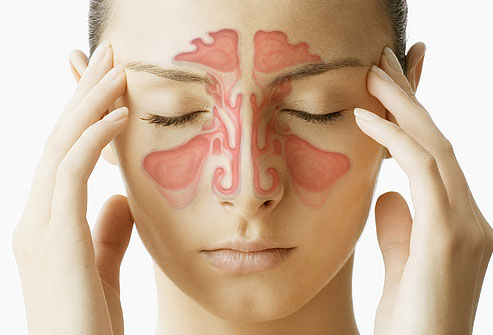
In winter sinusitis could arrive along with toothache…
In winter, due to the most common viral diseases and temperature gaps, the first respiratory ways are much more affected by infections or colds. These infections are responsible for bacterial proliferation which, inside sinuses, can cause sinusitis.
People affected experience symptoms such as: nasal congestion, a runny nose, frontal headache, difficulty in smelling and tasting, cheek pain but also TOOTHACHE, intense halitosis…
When the oral cavity is also affected by sinusistis, it is common to feel a widespread toothache. The cause is the swelling of the maxillary paranasal sinus, located close to the upper dental arch.
In some cases we can have the opposite, that is when sinusitis is caused by toothache.
It is called maxillary odontogenic sinusitis and causes a throbbing tooth pain due to an infection of premolars or first upper molars with roots located very close to the maxillary sinus. The infection then spreads along the root canal and can initiate an abscess or a periapical cyst.
The patient is often not aware of the real cause of the symptoms he is feeling. He therefore attributes them to allergic problems or respiratory ones. In such cases, antibiotic therapy will not solve the issue, as the inflammation will need to be treated by the othodontist.
In order to diagnose a sinusitis, a specialist medical examination is fundamental to evaluate its symptoms (headache, eye pain…). It can be carried out with a rhinoscopy which allows to analyze the health conditions of the sinuses, thanks to a fiber optic endoscope.
When antibiotic nor cortisone -based therapies are prescribed, it is possible to intervene with nasal decongestants, topical spray or natural remedies, such as nasal cleansing with saline solution. The latter allows to disinfect the sinuses, freeing them from excess mucus and relieving frontal and cheek pain.
Some simple tips which help prevent sinusitis:
- Wash hands often;
- Avoid touching eyes, nose and mouth with unwashed hands, especially if in public places;
- Constantly moisturize mucous membranes of nasal sinuses by drinking lots of water;
- Do not exceed with hand disinfectants to avoid favouring the development of microorganisms resistant to antibacterials;
- Humidify air in closed home and work environments to avoid dryness of the mucous membranes;
Do not ignore signs such as a toothache associated with a nose often congested or the feeling of pressure in the face, as they could be a sign of bacterial infection on which to intervene specifically.
